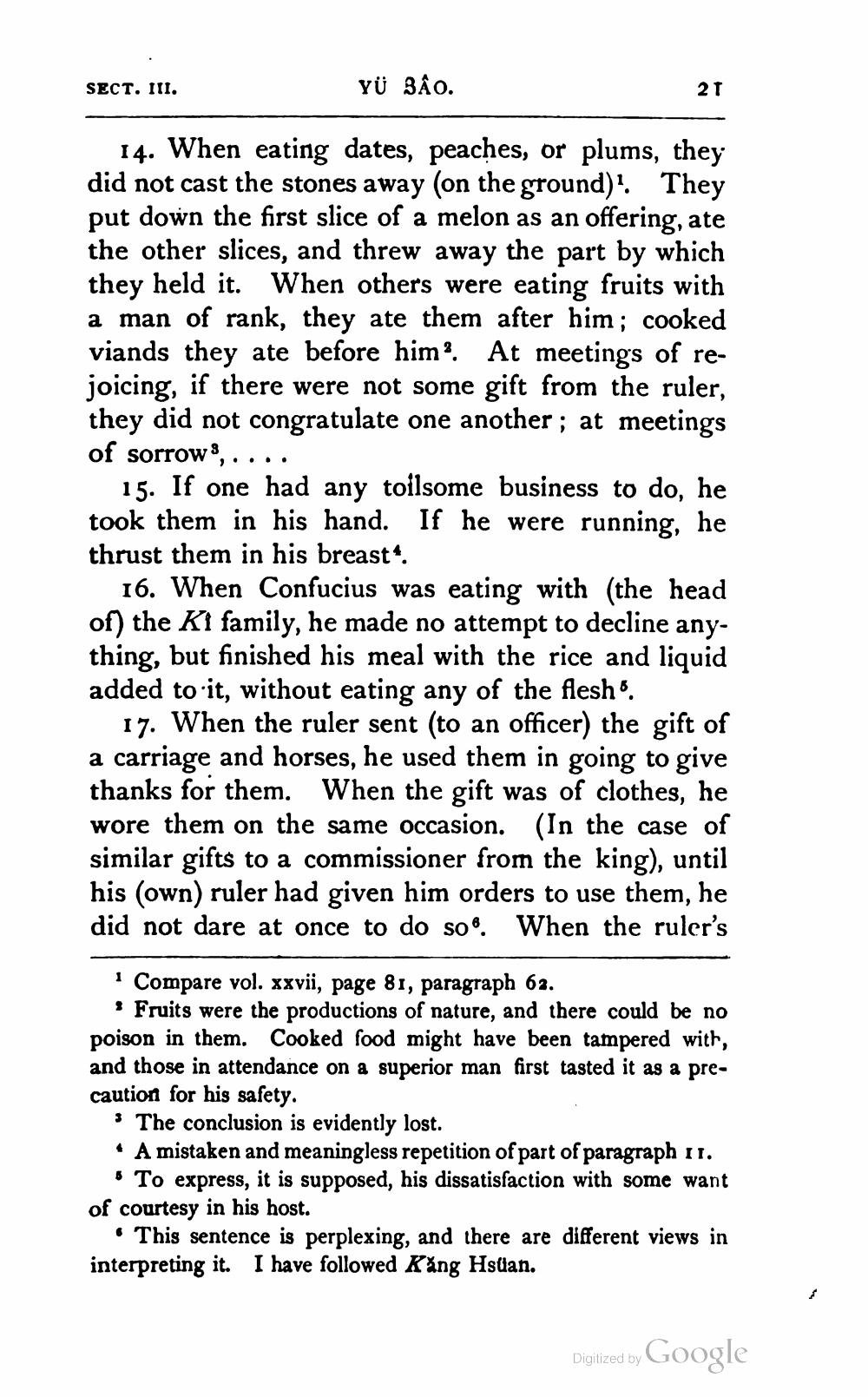________________
SECT. III.
YÜ SÃO.
21
14. When eating dates, peaches, or plums, they did not cast the stones away (on the ground)? They put down the first slice of a melon as an offering, ate the other slices, and threw away the part by which they held it. When others were eating fruits with a man of rank, they ate them after him; cooked viands they ate before him? At meetings of rejoicing, if there were not some gift from the ruler, they did not congratulate one another; at meetings of sorrow, ....
15. If one had any toilsome business to do, he took them in his hand. If he were running, he thrust them in his breast".
16. When Confucius was eating with the head of) the Ki family, he made no attempt to decline anything, but finished his meal with the rice and liquid added to it, without eating any of the flesh”.
17. When the ruler sent (to an officer) the gift of a carriage and horses, he used them in going to give thanks for them. When the gift was of clothes, he wore them on the same occasion. (In the case of similar gifts to a commissioner from the king), until his (own) ruler had given him orders to use them, he did not dare at once to do so. When the ruler's
Compare vol. xxvii, page 81, paragraph 62. * Fruits were the productions of nature, and there could be no poison in them. Cooked food might have been tampered with, and those in attendance on a superior man first tasted it as a precaution for his safety.
* The conclusion is evidently lost. • A mistaken and meaningless repetition of part of paragraph 11.
• To express, it is supposed, his dissatisfaction with some want of courtesy in his host.
• This sentence is perplexing, and there are different views in interpreting it. I have followed Kång Hsuan.
Digitized by Google




